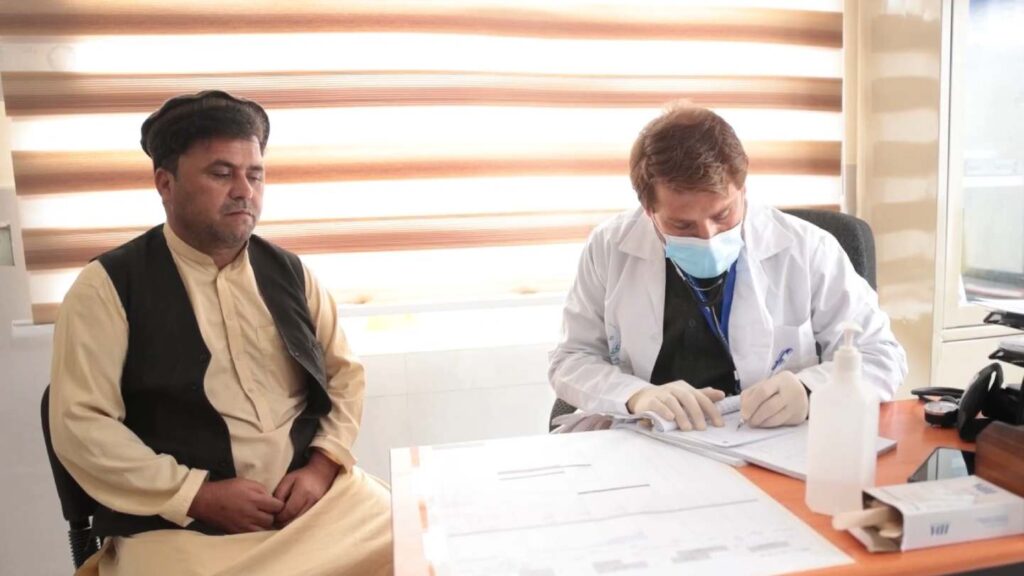Afghanistan’s healthcare system faces significant challenges due to decades of conflict, limited infrastructure, and shortages of trained medical personnel. Access to quality care is often restricted, particularly in rural regions where clinics may lack essential equipment, medications, and sanitation.
In this environment, health insurance plays a critical role in improving access to care. For many locals, out-of-pocket expenses remain the primary way to pay for treatment. Insurance can reduce financial strain and improve access to necessary services.
Understanding health insurance options is especially important for expatriates, NGOs, and businesses operating in Afghanistan. Selecting the right plan can help ensure timely care, emergency coverage, and protection in high-risk situations.
Public Health Insurance in Afghanistan
Public health insurance in Afghanistan remains limited and underdeveloped due to ongoing challenges in infrastructure and governance. The system primarily focuses on select groups and offers minimal coverage, leaving many without sufficient health protection.
Understanding its scope and limitations can help individuals and organizations make informed decisions.
What Is Public Health Insurance?
The Afghan National Insurance Company (ANIC) plays a central role in providing public health-related insurance coverage. However, Afghanistan does not have a universal health insurance system that covers the general population.
Instead, public health insurance mainly targets specific sectors with limited benefits. This absence of widespread coverage means many people must rely on out-of-pocket payments or private insurance.
Who Is Eligible?
Eligibility for public health insurance in Afghanistan generally includes government employees, students, and civil servants. These groups receive some form of accident and emergency coverage through the public system.
However, access for rural populations and low-income groups remains very restricted. The lack of healthcare infrastructure in rural areas further limits their ability to benefit from public insurance.
What Is Covered?
Public health insurance in Afghanistan typically offers coverage in the following areas:
- Personal accident insurance, providing financial support after accidents
- Emergency medical reimbursements, processed on a case-by-case basis
- Minimal routine care, mostly related to workplace injuries or accidents
The scope of coverage does not extend to most outpatient or preventive health services. This narrow range leaves many medical needs uninsured in the public sector.
Key Challenges
The public health insurance system faces several significant challenges:
- Claims processing is mostly manual, leading to delays and administrative inefficiencies
- The network of approved hospitals and medical providers is limited, reducing access to quality care
- Many beneficiaries report low satisfaction due to slow reimbursements and restricted coverage
- There is a general lack of awareness about available benefits, especially in underserved areas
These challenges highlight the need for improvements in administration, infrastructure, and communication to expand the reach and effectiveness of public health insurance.
Private Health Insurance Providers
Private health insurance in Afghanistan is becoming increasingly important, especially in urban centers where demand grows among non-governmental organizations, international businesses, and expatriates.
These private plans offer greater flexibility and broader coverage compared to the public system, addressing many of the gaps left by limited public options.
Growing Demand in Urban Areas
Urban areas such as Kabul, Herat, and Mazar-i-Sharif see the highest uptake of private health insurance. NGOs and international companies often require health plans that include emergency evacuation and comprehensive care for their employees.
Expats also prefer private insurance because it offers access to better medical facilities and international-standard treatment options. Overall, private insurance plans tend to provide more extensive benefits and personalized options.
Major Providers and Features
The following table summarizes key private health insurance providers in Afghanistan, highlighting their benefits, estimated annual premiums, and primary target groups:
| Provider | Key Benefits | Annual Premium | Target Audience |
|---|---|---|---|
| ICA | Emergency evacuation, outpatient services, dental care | $600–$2,000 | Expats, NGOs |
| AGI | Emergency coverage, hospitalization services | AFN 10,000+ | Urban residents |
| CSI | Includes coverage for pre-existing conditions after waiting period | AFN 9,000–15,000 | Individuals |
| KII | Basic inpatient and outpatient hospitalization | AFN 8,000–12,000 | Budget-conscious users |
| InterHealth | International-standard plans with broad coverage | $600–$1,500 | Organizations, multinational entities |
Comparison: Public vs Private Health Insurance
Private health insurance offers several advantages over the public system. While public insurance mainly serves government employees with limited benefits, private providers cater to a broader audience with more flexible plans. Private insurance typically covers outpatient care, maternity, dental, and emergency evacuation, which public insurance rarely offers.
Additionally, private plans often include faster claims processing and wider hospital networks, including partnerships with international clinics. However, private premiums are considerably higher and may not be affordable for the general population.
In contrast, public health insurance has lower costs but offers narrow coverage and less reliable service. Many individuals, especially outside urban centers, find private insurance necessary to ensure access to adequate healthcare.
Health Risks and Why Insurance Matters
Afghanistan faces significant health challenges that increase the importance of reliable health insurance. Both locals and expatriates encounter risks from common diseases, limited healthcare infrastructure, and ongoing security concerns.
Understanding these health risks highlights why having adequate insurance coverage is essential.
Common Illnesses in Afghanistan
Several diseases frequently affect the population due to environmental and infrastructural factors:
- Waterborne diseases: Contaminated water sources lead to illnesses such as diarrhea, cholera, and typhoid fever. These conditions cause high morbidity and require timely treatment.
- Respiratory infections: Acute respiratory diseases are widespread, especially during cold seasons, caused by indoor pollution and overcrowded living conditions.
- Dengue and malaria: Vector-borne diseases are present in certain regions, with seasonal outbreaks leading to serious health risks, particularly in rural areas.
These illnesses often require medical care that may not be affordable or easily accessible without insurance.
Maternal and Child Health Issues
Maternal and infant mortality rates remain high in Afghanistan due to insufficient prenatal and postnatal care. Limited access to skilled birth attendants and emergency obstetric services puts mothers and newborns at risk.
Health insurance can help by providing access to better healthcare facilities and coverage for essential maternal services, which significantly improves survival and health outcomes.
Need for Medical Evacuation and Trauma Care
Due to ongoing conflict and underdeveloped health infrastructure, emergency evacuation insurance is critical. Patients requiring specialized trauma care often must be transported to larger cities or neighboring countries for treatment.
Insurance that covers medical evacuation and trauma services can reduce financial burdens during emergencies and ensure timely access to life-saving care.
Health Insurance Tips for Expats and NGOs
Navigating health insurance in Afghanistan can be challenging for expatriates and NGO staff due to the country’s unique healthcare environment. Careful preparation and selecting the right coverage can make a significant difference in accessing timely and effective medical care.
What Expats Should Look For
When choosing health insurance, expats should prioritize plans that provide:
- Evacuation and terrorism coverage: Given the security situation, it is essential to have insurance that covers emergency evacuation and medical care related to conflict or terrorist incidents.
- International hospital partnerships: Access to hospitals with international standards ensures better quality care and often includes direct billing arrangements to minimize upfront costs.
- Direct billing options: Choosing insurance plans that offer direct billing with hospitals and clinics reduces the need for immediate out-of-pocket payments and simplifies claims processing.
These features help reduce financial risk and ensure prompt medical attention in emergencies.
How to Prepare
In addition to selecting appropriate insurance, expats and NGO workers should take practical steps before arrival and throughout their stay:
- Bring extra medication and prescriptions: Reliable access to certain medications can be limited, so carrying sufficient supplies and a copy of prescriptions helps avoid treatment interruptions.
- Stay updated on vaccinations and travel health advisories: Following recommendations from health authorities protects against common regional diseases and reduces health risks.
By preparing in these ways, expats can better manage their health and avoid unexpected medical expenses while working or living in Afghanistan.
Expert Advice and Final Thoughts
Health insurance in Afghanistan presents unique challenges, especially in regions where medical infrastructure is limited and emergency care is difficult to access. Whether you are a resident, an expatriate, or part of an international organization, strategic planning is essential for safeguarding your health.
Combine Local and International Coverage
Relying on a single health plan may not provide sufficient protection in all situations. Experts often recommend combining a local insurance policy with an international one.
Local coverage can help with routine checkups or emergency visits within the country, while international insurance ensures access to advanced treatment abroad or in private facilities. This approach balances cost with access to quality care.
Monitor Changes in the Healthcare Landscape
Afghanistan’s healthcare environment continues to evolve due to ongoing humanitarian efforts and policy changes. Staying informed about new medical facilities, health regulations, and updated insurance options can help you make smarter healthcare decisions.
Regularly reviewing your coverage in light of these developments ensures that your plan remains relevant and reliable.
Making informed choices today can save lives and reduce financial strain in the future. By preparing ahead and staying alert to changes, you place yourself in a better position to access the right care when you need it most.
FAQs
What is the best health insurance in Afghanistan?
The best health insurance options for expats in Afghanistan are typically provided by ICA and InterHealth. These companies offer international-standard care, emergency evacuation, and partnerships with reliable hospitals. They are well-suited for expatriates, NGO workers, and international businesses that require broader protection and fast claims support.
Can locals access private health insurance?
Yes, Afghan citizens can access private health insurance, particularly in major cities. However, the cost of premiums remains a barrier for many. Private plans are most commonly used by individuals employed in urban areas, international organizations, or private companies that offer health benefits to their staff.
Is health insurance mandatory in Afghanistan?
Health insurance is not legally required in Afghanistan. As a result, most people rely on out-of-pocket payments when they need medical care. Public insurance is limited to select groups, such as government employees and students, and provides only basic coverage.
Are pre-existing conditions covered?
Some private insurers do offer coverage for pre-existing conditions, but it usually comes with a waiting period. For example, Capital Star Insurance (CSI) includes pre-existing condition coverage after the policy has been active for at least one year. It is important to review policy terms carefully before enrollment.
Do any plans cover war or conflict-related injuries?
Certain international health insurance providers include limited coverage for injuries related to terrorism or armed conflict. These policies are often designed for expatriates or NGO staff operating in high-risk regions. However, coverage levels and exclusions vary, so it is essential to confirm the specifics with the insurance provider before purchasing a plan.



